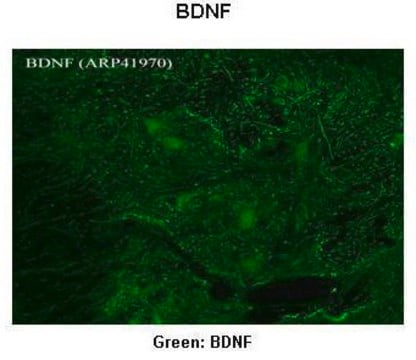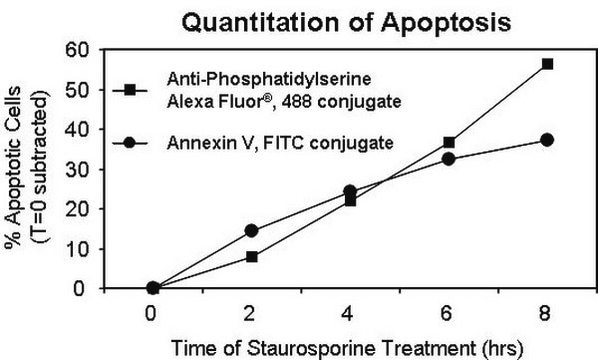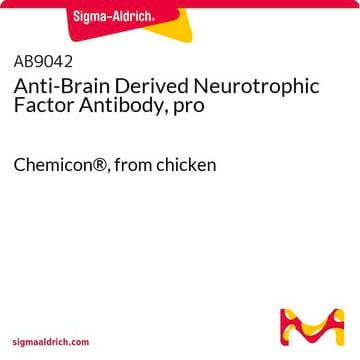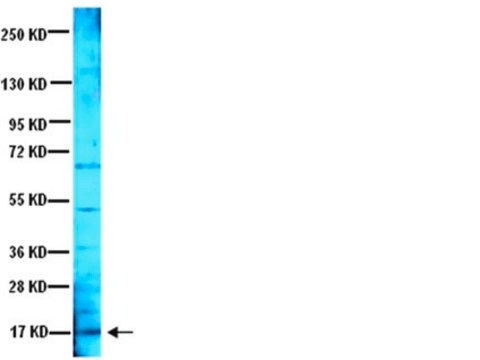AB1534SP
Anti-Brain Derived Neurotrophic Factor Antibody
Chemicon®, from rabbit
Synonyme(s) :
BDNF
About This Item
Produits recommandés
Source biologique
rabbit
Niveau de qualité
Forme d'anticorps
purified immunoglobulin
Type de produit anticorps
primary antibodies
Clone
polyclonal
Espèces réactives
mouse, rat, human
Fabricant/nom de marque
Chemicon®
Technique(s)
ELISA: suitable
immunohistochemistry: suitable
western blot: suitable
Numéro d'accès NCBI
Numéro d'accès UniProt
Conditions d'expédition
dry ice
Modification post-traductionnelle de la cible
unmodified
Informations sur le gène
human ... BDNF(627)
Catégories apparentées
Spécificité
Immunogène
Application
Immunoblotting: 1-10 μg/mL. BDNF is not easily extracted in standard buffers. Dissected tissues should be homogenized in 10 volumes of 100mM phosphate buffer containing 1mM EDTA, 2M guanidine hydrochloride (pH7.2), and three protease inhibitors, 10mM N-ethylmaleimide, 0.36mM pepstatin, and 1mM PMSF. Homogenates are then sonicated and centrifuged at 46K x g for 30 minutes at 4°C. BDNF migrates as 18 kDa, with a homodimer at ~27-30 kDa.
ELISA (one-site): 1-10 μg/mL
Optimal working dilutions must be determined by end user.
Neuroscience
Neurochemistry & Neurotrophins
Neuroinflammation & Pain
Description de la cible
Forme physique
Stockage et stabilité
Remarque sur l'analyse
Brain tissue
Autres remarques
Informations légales
Clause de non-responsabilité
Vous ne trouvez pas le bon produit ?
Essayez notre Outil de sélection de produits.
En option
Code de la classe de stockage
13 - Non Combustible Solids
Classe de danger pour l'eau (WGK)
WGK 3
Point d'éclair (°F)
Not applicable
Point d'éclair (°C)
Not applicable
Certificats d'analyse (COA)
Recherchez un Certificats d'analyse (COA) en saisissant le numéro de lot du produit. Les numéros de lot figurent sur l'étiquette du produit après les mots "Lot" ou "Batch".
Déjà en possession de ce produit ?
Retrouvez la documentation relative aux produits que vous avez récemment achetés dans la Bibliothèque de documents.
Notre équipe de scientifiques dispose d'une expérience dans tous les secteurs de la recherche, notamment en sciences de la vie, science des matériaux, synthèse chimique, chromatographie, analyse et dans de nombreux autres domaines..
Contacter notre Service technique








